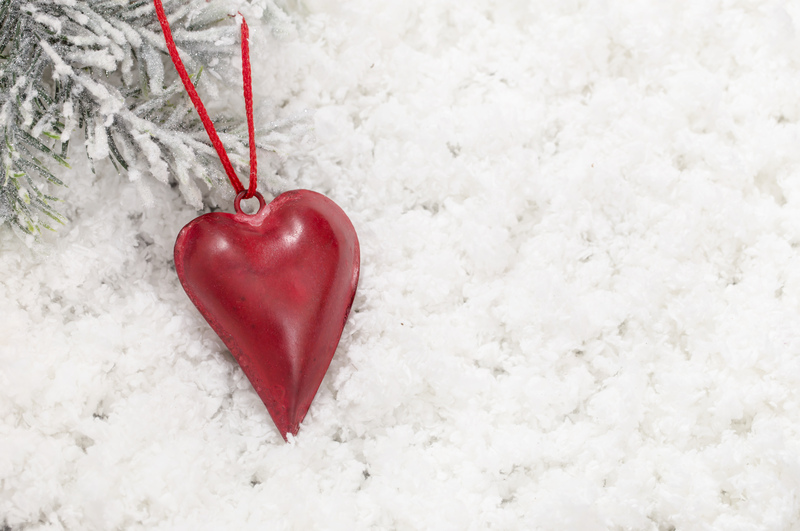Green Alternatives for Plant Pot Disposal: Sustainable Solutions For Every Gardener
In the current era of environmental consciousness, more and more gardeners, plant enthusiasts, and even commercial growers are searching for green alternatives for plant pot disposal. Traditional plant pots, especially those made from plastics, contribute significantly to landfill waste and environmental pollution. So, exploring eco-friendly plant pot disposal options is not just good practice; it's essential for a sustainable future. This comprehensive guide will walk you through innovative, practical, and planet-friendly ways to keep your pots out of the landfill and give them a new lease on life.

Why Proper Plant Pot Disposal Matters
The standard plant pot, often black plastic, is a ubiquitous tool for gardeners and nurseries. However, many of these plastic plant containers are made from types of plastic that recycling centers may not accept, especially the black ones. This leads to millions of pots being tossed into trash bins each year.
- Environmental Impact: Plastic pots can take hundreds of years to break down, leaching chemicals into the soil and waterways.
- Resource Waste: The extraction and production of new plastics consume fossil fuels and energy, adding to global warming.
- Wildlife Hazards: Disposed pots may break into harmful microplastics, posing risks to animals if not managed properly.
Thus, finding eco-friendly plant pot disposal methods not only helps keep our gardens green but also supports global sustainability efforts.
1. Reuse and Repurpose Plant Pots
Perhaps the easiest and most impactful sustainable plant pot disposal option is to reuse and creatively repurpose old plant pots. Giving a second life to your containers avoids unnecessary waste and can even save you money.
Ideas for Reusing Plant Pots
- Grow New Plants: Reuse pots for starting seeds, propagating cuttings, or potting up new plants.
- Craft Projects: Turn old pots into decorative planters with paint or mosaic designs.
- Outdoor Organizers: Use sturdy pots to store garden tools, hoses, or soils.
- DIY Bird Feeders or Baths: With a touch of creativity, plastic or clay pots can become homes for wildlife.
- Educational Kits: Offer pots to local schools for classroom planting projects.
*Reusing* not only makes for greener plant pot disposal but also fosters creativity and a sense of environmental stewardship in your community.
2. Participate in Return and Recycle Programs
Many nurseries and garden centers have recognized the persistent issue with plastic waste and now offer plant pot recycling programs.
How to Find Plant Pot Recycling Options
- Local Nurseries: Call and ask if they accept used pots for recycling or reuse; some even give discounts for pot returns.
- Municipal Recycling Centers: Check your city or county's recycling program guidelines. Some centers accept rigid plastics like plant pots.
- Big-Box Garden Retailers: National chains may offer collection bins specifically for old pots and trays.
- Community Recycling Drives: Look for local gardening or environmental groups that host annual pot recycling events.
Important Tips:
- Clean your pots before dropping them off to prevent the spread of pests or diseases.
- Verify if your pots are recyclable; black plastics and some types of resin often are not accepted.
3. Opt For Biodegradable and Compostable Pots
One of the greenest plant pot disposal solutions is to use biodegradable plant containers from the start. These pots decompose naturally and can often be planted directly into the ground, breaking down as the plant grows.
Popular Types of Eco-Friendly Plant Pots
- Coir (Coconut Fiber) Pots: Made from coconut husks, these are renewable and fully compostable.
- Peat Pots: Typically used for seed starting; they are biodegradable but consider sustainability issues around peat harvesting.
- Rice Hull or Bamboo Pots: Made from agricultural byproducts, these decompose in compost or soil.
- Paper or Cardboard Pots: DIY paper pots are perfect for seedlings and can go straight into the compost.
Choosing compostable plant containers minimizes your long-term disposal concerns and enriches the soil once they break down.
4. Upcycling: Creative Ways to Transform Old Plant Pots
Upcycling old plant pots can be a fun and environmentally responsible approach to waste-free plant pot disposal. Not only does it reduce waste, but it also adds unique character to your garden or home.
Creative Upcycling Projects
- Garden Art: Transform broken or worn pots into whimsical garden sculptures or fairy gardens.
- Light Fixtures: Use colorful pots to create hanging pendant lights for outdoor spaces.
- Vertical Planters: Stack or attach pots to a wall or fence for a living wall effect.
- Storage Containers: Repurpose for organizing hardware, kid's crafts, or pet supplies indoors.
*Upcycling* not only supports sustainable plant pot disposal but encourages resourcefulness and reduces your carbon footprint.
5. Share or Donate Extra Plant Pots
Do you have a surplus of pots in good condition? Consider sharing the wealth. Donating pots supports a circular economy and helps fellow gardeners in your community.
Where to Donate or Share Plant Pots
- Community Gardens: Many group gardens love donations of sturdy pots and trays.
- Schools and Youth Groups: Education programs often run on tight budgets and will eagerly accept supplies.
- Online Marketplaces: List your pots for free on sites like Freecycle, Facebook Marketplace, or Craigslist.
- Charity Shops: Some thrift stores and non-profits accept plant pots for resale.
This approach makes green alternatives for plant pot disposal more accessible and social, fostering a sense of community while protecting the environment.
6. Try DIY Plant Pot Projects Using Household Items
Sometimes, the best alternative is to avoid bought pots altogether. Re-purpose household items into unique plant containers, ensuring a truly sustainable plant pot life cycle.
Household Items to Convert into Eco-Friendly Pots
- Cans and Jars: Tin cans and glass jars make trendy planters after proper drainage is added.
- Egg Cartons: Great for seed starting, these can go straight into the compost after use.
- Old Teapots or Mugs: Broken crockery finds new purpose as quirky planters.
- Plastic Bottles or Containers: Repurpose and decorate, then recycle when they're no longer usable.
This *DIY* approach ensures you aren't creating demand for new plastics and keeps potential waste in your home out of landfills.
7. Choosing Sustainable Pots From the Start
Prevention is better than cure--especially for environmental waste! When purchasing new pots, prioritize materials and brands that use sustainable practices or recyclable content.
What to Look For in Green Plant Pots
- Recycled Content: Some manufacturers use post-consumer recycled materials to make new pots.
- Return-Deposit Systems: Look for brands that take back pots for reuse or recycling.
- Locally Made: Locally produced pots often have a smaller carbon footprint than imported pots.
- Natural Materials: Clay, wood, bamboo, and fiber pots are more earth-friendly than virgin plastics.
*Investing* in the right containers makes future plant pot disposal considerably easier.
8. What to Do With Broken Plant Pots?
Even the most careful gardener will eventually have to deal with a cracked, chipped, or broken plant pot. Fortunately, there are several *sustainable* disposal and reuse options:
- Drainage Material: Break ceramic or terracotta pots into pieces and use them at the bottom of other pots to enhance drainage.
- Mosaic Crafts: Shattered pottery can become beautiful mosaic art for stepping stones or garden paths.
- Pathway Fill: Use broken terra cotta as filler for decorative garden paths or beds.
- Recycling: Some local recycling programs accept ceramics or clay, but check first.

Understanding the Life Cycle of Plant Pots
The journey of a plant pot--from production, through use, to eventual disposal--affects our environment in many ways. By adopting green alternatives for plant pot disposal, you directly reduce waste, conserve resources, and minimize pollution.
- Manufacturing Impact: Choosing recycled or biodegradable pots lowers overall emissions and resource use.
- Usage: Reusing and repurposing extends a pot's lifespan, delaying its entry into waste streams.
- End-of-Life Disposal: Composting, upcycling, or returning pots closes the sustainability loop.
Conclusion: Embrace Eco-Friendly Plant Pot Disposal
Sustainable gardening is more than just tending to your plants--it's caring for the world they grow in. Whether you reuse, recycle, upcycle, or choose biodegradable options, every effort counts in minimizing the environmental impact of plant pot disposal.
Make a conscious decision to adopt green alternatives for plant pot disposal in your daily gardening practices. Share these ideas with your gardening community and inspire others to embrace a greener thumb--as together, we can grow a healthier, less wasteful world.
Remember: Every small action makes a difference. Start with your next plant pot, and let sustainability take root in your garden!